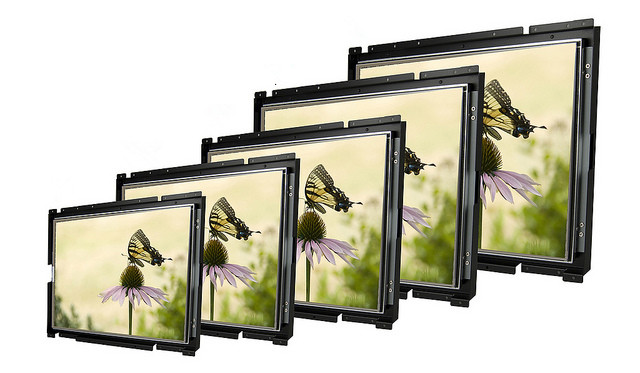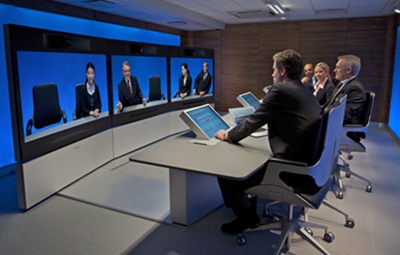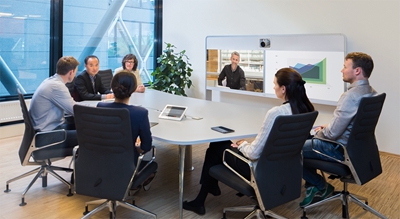Video
and interactive display technology have become an indispensable tool for
relaying information. While it was once true that these displays were little
more than a flashy gimmick, today they have real benefits for companies.
They can be used to improve the efficiency of meetings and briefings by
facilitating the flow of data, ideas, and decisions. Ultimately, this makes an
organization more responsive to emerging market conditions. In short, this
technology can give a company a competitive advantage by increasing the
efficiency of collaboration between stakeholders.
Reduced Technology Costs

The price of large touch screen devices has reduced due to the growing
demand from consumers. As with any industrial product, manufacturers enjoy the
benefits of economies of scale, resulting in greatly reduced production costs
when more units are produced. This allows them to further stimulate demand by
reducing prices.
Another benefit of great demand is the emergence of a number of large touch
screen manufacturers. This leads to competition, which results in better deals
for consumers. In this case, better deals mean better prices, better customer
service, and better after-sales care.
As a result, even professional large screens are now available at a price that
most businesses can easily justify, especially in light of the benefits
outlined in the rest of this article.
Connecting Stakeholders

Many cases of organizational waste and inefficiency can be traced back to a
failure to coordinate activities at a managerial level. When you add the cost
of missed opportunities, it becomes clear that frequent meetings and briefings
are essential to avoid this waste.
This becomes more important as the company scales up. But there is another
factor. As a company scales, key stakeholders become more embroiled in the work
of managing their own spheres of responsibility. This can often mean that they
are called away from the central office to deal with a situation at a satellite
location. This often leads to canceled meetings or results in a poorly
coordinated team.
While teleconferencing has been touted as a solution for years, it has often
fallen short of expectations. Slow Internet connections and small laptop screens
have added a degree of disconnect that robs meetings of their face-to-face
immediacy. But Internet connections have improved considerably in the last several years.
And large interactive screens dramatically improve the "telepresence"
effect. What's more, they make it possible to share a virtual "whiteboard,"
making it easier to brief teams using AV assets and aiding collaboration.
Facilitating Feedback

The essential element that makes touch screens an essential technology is
the fact that they enable the viewer to interact with a presentation.
Participation is an important element of almost all meetings, where
stakeholders have vital information and insights to contribute.
Old presentation technologies have excelled in providing a one-way flow of
information but have made it difficult for participants to contribute. In other
words, they were excellent for lecturing to a group of people, but they did not
support feedback.
Today's presentation software is designed with collaboration in mind and a touch screen device makes it easy for participants to interact with this
software easily. They make
it easy for participants to add their own annotations and communicate visually.
What's more, these annotations can become a permanent part of the digital
assets, turning a static presentation into a living document. The benefit to a business is the rapid dissemination of data
and ideas in multiple directions, removing barriers that would prevent the team
from communicating efficiently.
Previous:Interactive Displays Come to the Boardroom
Next:How to Utilize Touch-screen Technology Effectively to Engage Potential Clients?


